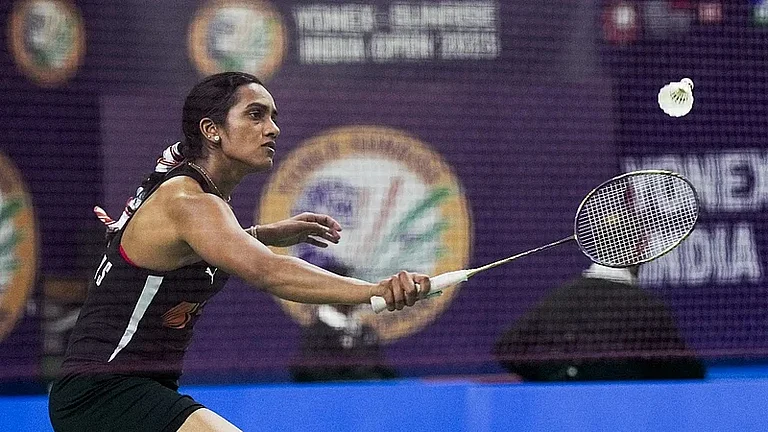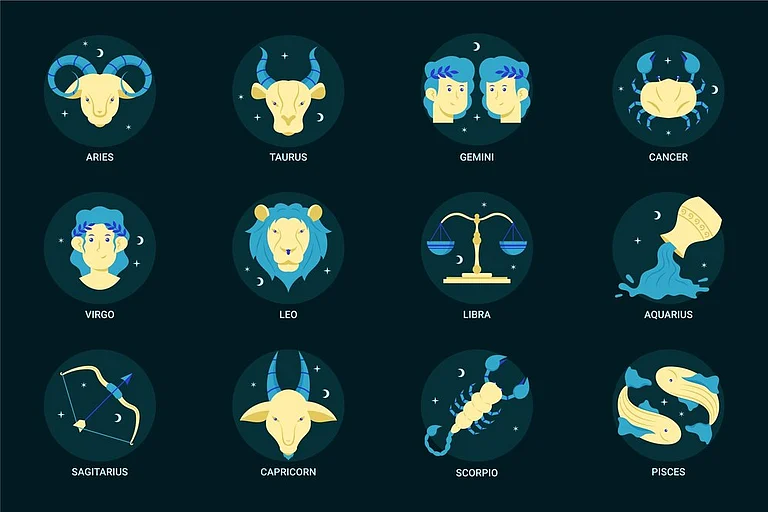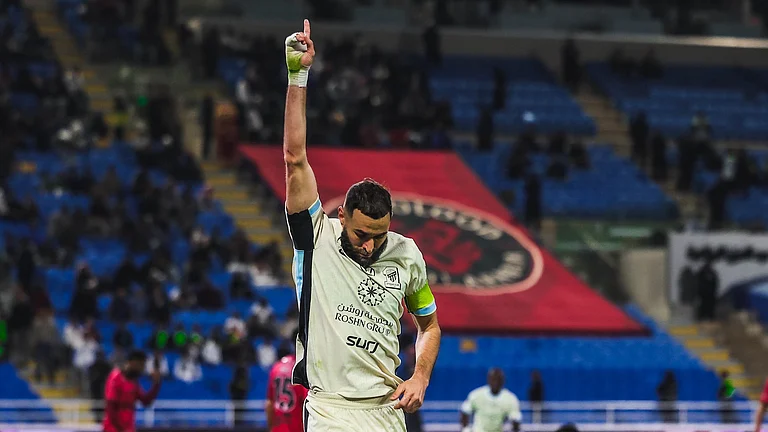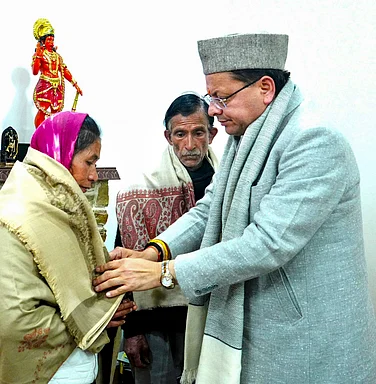The hijacking has highlighted the cowardice in Hindu society.... Even in the aircraft, eight or 10 young men could have stood together and tried to capture the hijackers by creating a frenzy. But they failed to rise, despite the murder of a co-passenger, because of the fear of death."
-
RSS chief Prof Rajendra Singh in the RSS organ Panchajanya
The RSS chiefs statement, meant to exonerate the government and shift the blame to the victims and their relatives for the poor handling of the hijacking crisis, has failed to receive the expected dividends. It is in fact threatening to boomerang on him and his organisation. Having blamed the entire Hindu community for "cowardice", the RSS is now hard put to justify its stance. Anticipating a strong reaction over such a generalisation, the organisation has found a convenient refuge behind the uttering of its one-time adversary Mahatma Gandhi who had called Hindus cowards.
In Panchajanya, Singh minced no words in criticising the relatives for exerting pressure on the government to release the three militants. He described their protests as "unworthy of a civil and self-respecting society". On the other hand, his mild and oblique criticism of the government did not go beyond a word of caution, that it "should not take any decision under pressure", implying that the government was forced by the relatives to release the militants.
Opinion seems to be divided in the RSS over the manner in which the crisis was handled. Hardliners aligned with home minister L.K. Advani feel that by mishandling it, the government (read the PMO) let everyone down. Since stories about a tussle between the PMO and the home ministry-later denied by both-over the handling of the crisis began to circulate, the RSS, as the mother organisation, took upon itself the task of giving the government a clean chit.
Such support for Prime Minister A.B. Vajpayee was part of the agreement reached last year after the Sangh parivar organisations were engaged in a pitched battle with him. The Sangh realised that criticising Vajpayee in public would not get it anywhere as he was the only vote-catcher in the BJP. The RSS has shown that, for now, it will not go back on that promise. But exonerating the government without finding another scapegoat would have made it a laughing stock. And so it heaped blame on the relatives.
The reaction to the RSS chiefs remarks were however sharp and critical. Newspapers lampooned the "convoluted thinking" of the RSS leadership. "Not known for its empathy at the best of times, the RSS, in this case, has parted company with common sense," commented The Statesman. Realisation within the RSS came a little late in the day that the fallout of Singhs sweeping statement could be negative. In order to cushion that, the RSS think-tank took recourse to Mahatma Gandhis 1924 comment about Hindu cowardice. The organisations ideologue Devendra Swaroop justifies the stance. "After the communal riots of 1924 Mahatma Gandhi said that every Muslim is a bully and every Hindu a coward," he says, adding that panic set in when one Dr Sanjeev said on television that releasing a few individuals and maintaining territorial integrity are two different issues and the government should not hesitate to release the militants to secure the safe return of the hostages. "Jab ek rota hai to doosra rota hai. Phir char-paanch rote hein aur krandan hota hai (When one person starts crying, another joins him, then four or five people start crying and then it turns into mass wailing)," says Swaroop, pointing out that Singh was not merely criticising the relatives but had also condemned the release of the "terrorists".
The RSS is annoyed with the relatives for not "standing with the government in the hour of crisis". Believing that it is the sole organisation committed to the Hindu cause, the RSS leadership thinks it is its legitimate right to give directions to Hindu society and even chastise it when the need be. Swaroop says the relatives should have realised the hijacking was a continuation of the Kargil war. "Didnt those who gave up their lives in Kargil have relatives?" he asks. "There should have been some commitment. What would have happened? Maximum 10 people would have died."
RSS watchers view this as its typical line of thinking: blaming the victim for his woes. Prof Purushottam Aggarwal of the jnu refers to the controversial autobiography of RSS activist Krishna Gopal Rastogi who admitted to killing a Muslim woman to "save her honour" from rioters. "Hindu society is much more brave and sensitive despite the RSS," says Aggarwal. "Eventually, virtues like bravery lies with the individual, not the whole community."
Another RSS watcher D.R. Goyal, whose book Rashtriya Swayam Sevak Sangh gives an interesting insight into the history and functioning of the RSS, says the organisation has no right to term the entire Hindu community cowards since its swayamsevaks themselves showed no bravery when they gave undertakings to the government during the Emergency to secure their release from jails. He alludes to the account of Baba Adhav, a socialist leader detained in Yerawada jail, Maharashtra, during that time. In an article published in Secular Democracy, Adhav wrote that the RSS leadership was desperate to meet Indira Gandhi and had approached then Maharashtra chief minister S.B. Chavan to arrange a meeting. "That signing an undertaking was part of this effort is known to all the prisoners in Yerawada jail. The ... proforma of the written undertaking signed by these freedom fighters brings into sharp relief their cowardice," notes Adhav.
Goyal in his book published the letters written to Indira Gandhi by the then RSS chief Balasaheb Deoras. In one of them, Deoras sought to dissociate the Sangh from JPs movement. Wrote Deoras: "The name of the Sangh has been linked with the Bihar and the Gujarat movements again and again and without any cause (sic). In reference to the clarification of the fact, the Sangh has no connection with these movements ..."
The debate ignited by the current RSS chiefs statement highlights the huge gap between the beliefs of the RSS and Hindu society at large. Apparently, the organisations leadership has not realised this yet. Second-rung RSS leaders like Madan Dass acknowledge this fact. Now, the question before the RSS is how to bridge this gap without diluting its ideological core. The solution, according to its senior leaders, lies in infusing bravery and militancy into Hindu society. Others see in all this a typical Freudian slip.


























